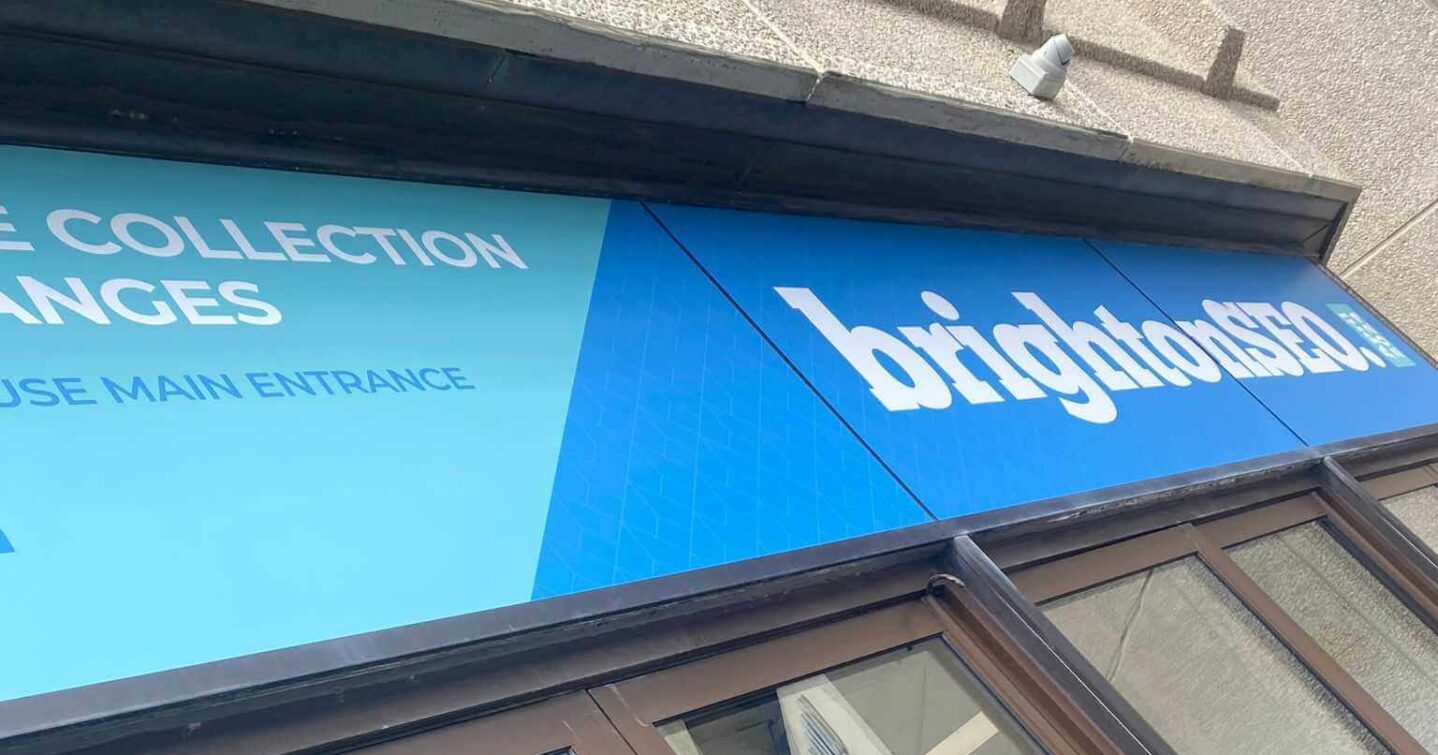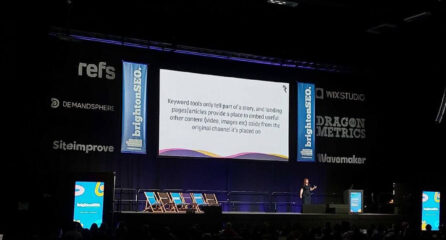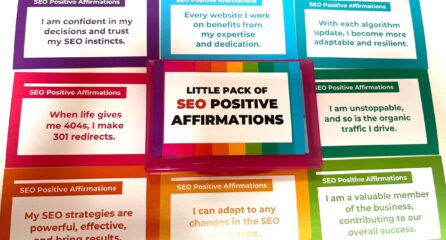This week we welcomed our Loomies back to the office after another successful trip to the south coast for BrightonSEO, an agency-wide favourite on the industry calendar.
Two members of our SEO pod, Tegan and Jack, returned from the beach with fresh perspectives and heads chock-full of industry insights. As they share their findings with the wider team and start factoring them into the fantastic work we do for our clients, let’s take a look into what BrightonSEO October 2024 had to offer.
OUR INSIGHTS FROM BRIGHTONSEO OCTOBER 2024
This was one of the most diverse and exciting BrightonSEO conferences ever. The conference space bustled with pioneering thinkers specialising in search, tech SEO and content. While much of the industry had their sights set on a few key topics (everyone crossed AI off their BrightonSEO bingo card, right?), there was certainly an inspiring range of talks to be found and discussions to be had for those on the creative fringes of SEO and content.
SEO faces challenges around changes in the search space
Talk: Heads of SEO Round Table Discussion
As part of BrightonSEO’s jam-packed schedule, we had the opportunity to take part in one of their roundtables – the ‘Heads of SEO’ discussion. Tegan got to hear from a number of leading SEO experts, all discussing the challenges we’re facing as an industry and exchanging ideas going forward.
There was a key focus on the use of AI and its implementation in strategy and training. It’s no secret that AI is making waves in terms of our processes and the way we think about of the user journey – we’ve already started incorporating the latest tools into our work. Finding a wider range of tools that will not only elevate the work we do but also make us more efficient. From tips on how to use LLM’s to make lengthy tasks simpler or faster to ways to test theories and build strategies. However, Tegan came away with even more tips and tricks to further enhance what we do.
Tegan’s thoughts:
“This round table was a fantastic opportunity to open dialogue with other agencies. It was both reassuring and exciting to learn they’re facing the same challenges as the industry continues to navigate a transition period, and how aligned we are on many of the key subjects of the moment. The best takeaway was the host of new tools and processes I’ll be looking to immediately incorporate into Loom’s wheelhouse – namely the exciting Notebook LM and ChatGPT functionality.”
The value of category pages
Talk name: Why Category Pages Hold the Key to Growth for Brands
Alex Jones’ talk covered how companies are missing critical opportunities through their website, and how SEO’s involvement can help identify key organic traffic and roots to market. One of these opportunities is the introduction of simple category and subcategory pages.
We’re big fans of category pages here at Loom. While product pages hold a lot of value, sometimes it’s worth taking a step back and target slightly broader keywords that act as umbrella terms for your products. This can make navigating your website easier for the user, especially if you have multiple products which are similar in more ways than one. If you find customers are struggling to understand which product is right for them, or you’re struggling to fit certain products within your overall site architecture, then a category page could be the right answer.
Tegan’s thoughts:
“This talk reaffirmed how sometimes sticking to the basics. Adding category and sub-category pages (that can carry big search volumes) can result in big wins for a client, especially as added value in a migration project.
“Migrations for SEO are important for protecting organic performance, but they also offer the opportunity to scale up and improve results. As part of an SEO migration strategy, adding high search volume category and sub-category pages that were not part of the old site can provide even more results for a client. At Loom, we look at what a website can achieve in its current form, but we also look at its potential and how it can achieve more. This can be done via new pages, page optimisations and website structure.”
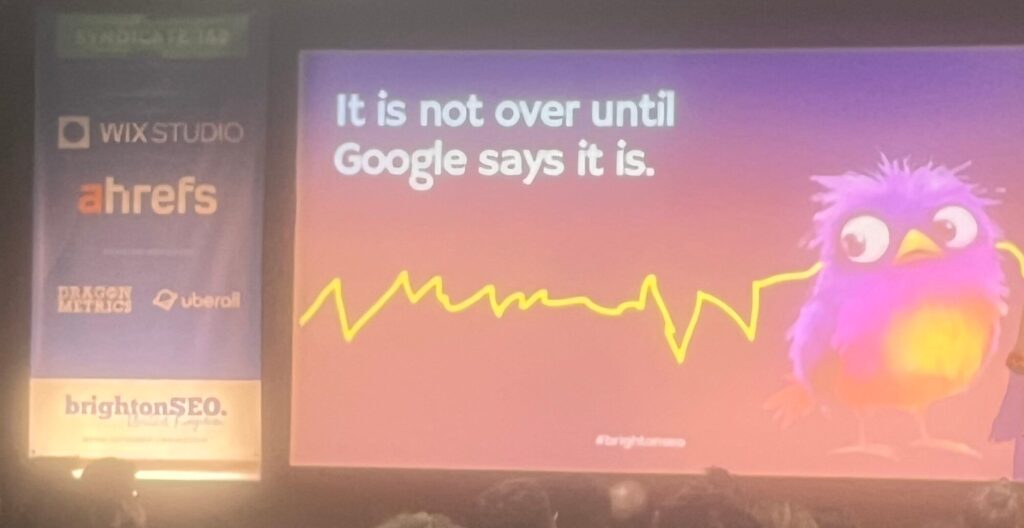
Careful and considerate Local SEO helps avoid Google crackdowns
Talk name: Local SEO Panel
Local SEO is key to many SEO strategies. In this panel discussion, Jack got to hear local SEO podcasters, such as Gregg Gifford, Claire Carlile and Michel van Luijtelaar, list their key considerations for Google Business Profiles (formerly Google My Business).
As with any reviews platform, Google Business Profiles (GBP) are a fantastic way of showcasing all your business has to offer, from photos of products and offices, regular posts and key information, like opening times and contact details. But, arguably, what matters the most are your reviews.
According to Brightlocal’s 2024 Local Consumer Review Survey, 91% of consumers say that their image of a brand is impacted by local reviews. That’s why businesses should encourage their customers to leave reviews where they can, providing more insights for users about your products or services that don’t just come from brands themselves. This element of social proof can help make all the difference.
And if you get a negative review? Don’t forget to reply – in the same Brightlocal study, 88% of consumers said they’d use a business that regularly responds to reviews.
Jack’s thoughts:
“Google is putting a huge focus on review fraud right now, so it’s important to be aware of how you’re securing feedback and make sure your reviews are solely from people who have had genuine experience with your business.
“When we have a negative experience, we feel more driven to shout about it! It’s not the same for positive experiences, which, while memorable, might not move us to leave a star rating or glowing endorsement. You need to actively ask your customers and clients to leave their thoughts when they have a positive experience, or risk seeing your review page overrun by solely negative feedback.”
Technical Innovation with AI
Talk name: Technical Innovation Sessions
The hot topic of the week! These Technical Innovation talks focused on the increasingly prevalent role of AI in SEO, highlighting ways to optimise your workflow, capture data and even employ Google’s new CrUX Vis tool.
Since Google rolled out Core Web Vitals, many businesses have been focusing on improving their user experience across their site. There are many elements to consider – which we explore in our Core Web Vitals guide – but reports like those on Google Search Console can be limited, especially for reporting.
Google’s CrUX Vis tool presents this data in a new, visual way, with in-depth reports that paint a clear picture of current site performance. You can also compare data month on month, separate the report by device and toggle each metric’s report to suit you.
While Core Web Vitals do not carry the most weight in terms of search rankings, it’s still important to optimise your site for these metrics, providing a smooth user experience for your customers. The CrUX Vis tool adds another layer to your reporting, with even more data to enhance your strategies and ensure that your website is a breeze to navigate.
Jack’s thoughts:
“The first of these three talks focused on utilising AI to help speed up the process of importing data into Google Sheets from Screaming Frog, allowing you to set rules in order to format the data using scripts. This is something I’ve already begun to look into and start building basic scripts for.
These talks also highlighted the capabilities of Google Colab and how it can help us learn crossover skills, such as coding, in order to automate tasks and better understand technical issues hampering a client’s website. Additionally, we both left enthused at the possibilities of CrUX.io and how we can use its functionality to generate reports that highlight competitor site speeds to better understand our client’s positioning and secure buy-in from key stakeholders.”
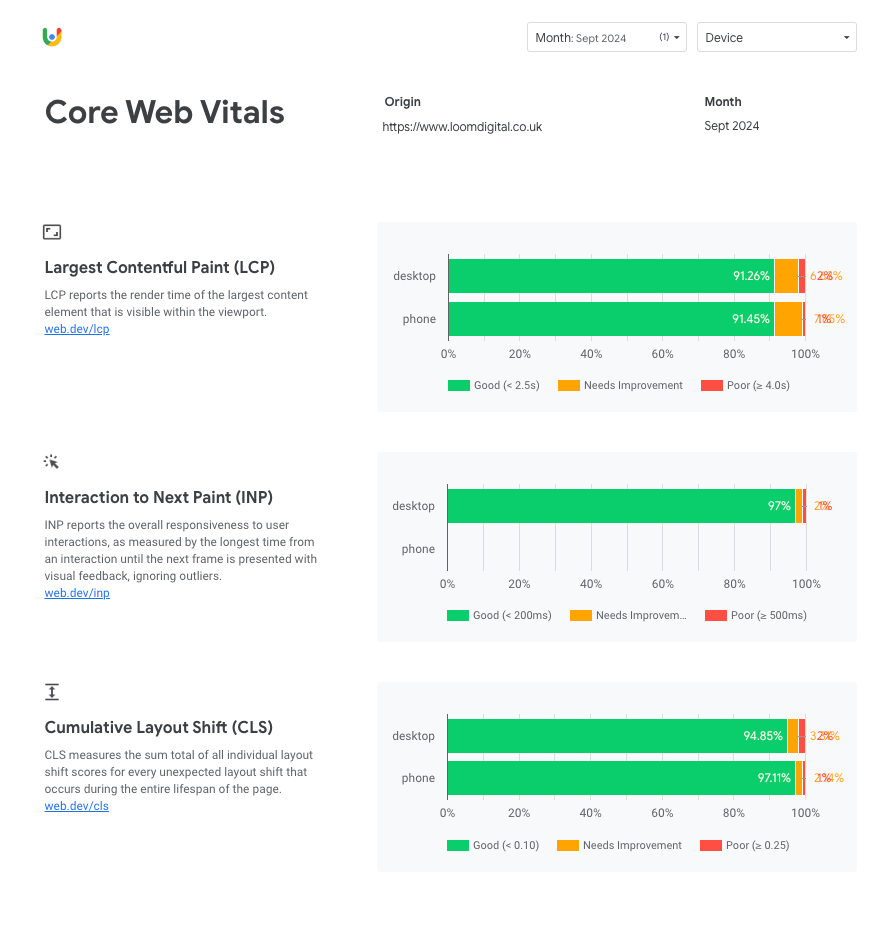
CUTTING-EDGE SEO AND CONTENT INSIGHTS FROM LOOM DIGITAL
BrightonSEO isn’t just a chance for Loomies to get back to the great British seaside. It’s an opportunity for us to hone our skills, build connections with fellow industry innovators and ensure Loom’s work remains at the cutting edge. The conference has long been a high point for our SEO and Content teams, who never fail to leave inspired.
Check out our past experiences at BrightonSEO on the Loom blog:
- Re-thinking content and the importance of manual SERP analysis in October 2022
- The unstoppable surge of AI at the September 2023 conference
- This year’s Spring conference in April 2024
If you’d like to know more about our SEO services and see how we can implement our learnings on your website, then speak to our team on 0117 923 2021 or send us an email at: [email protected].
